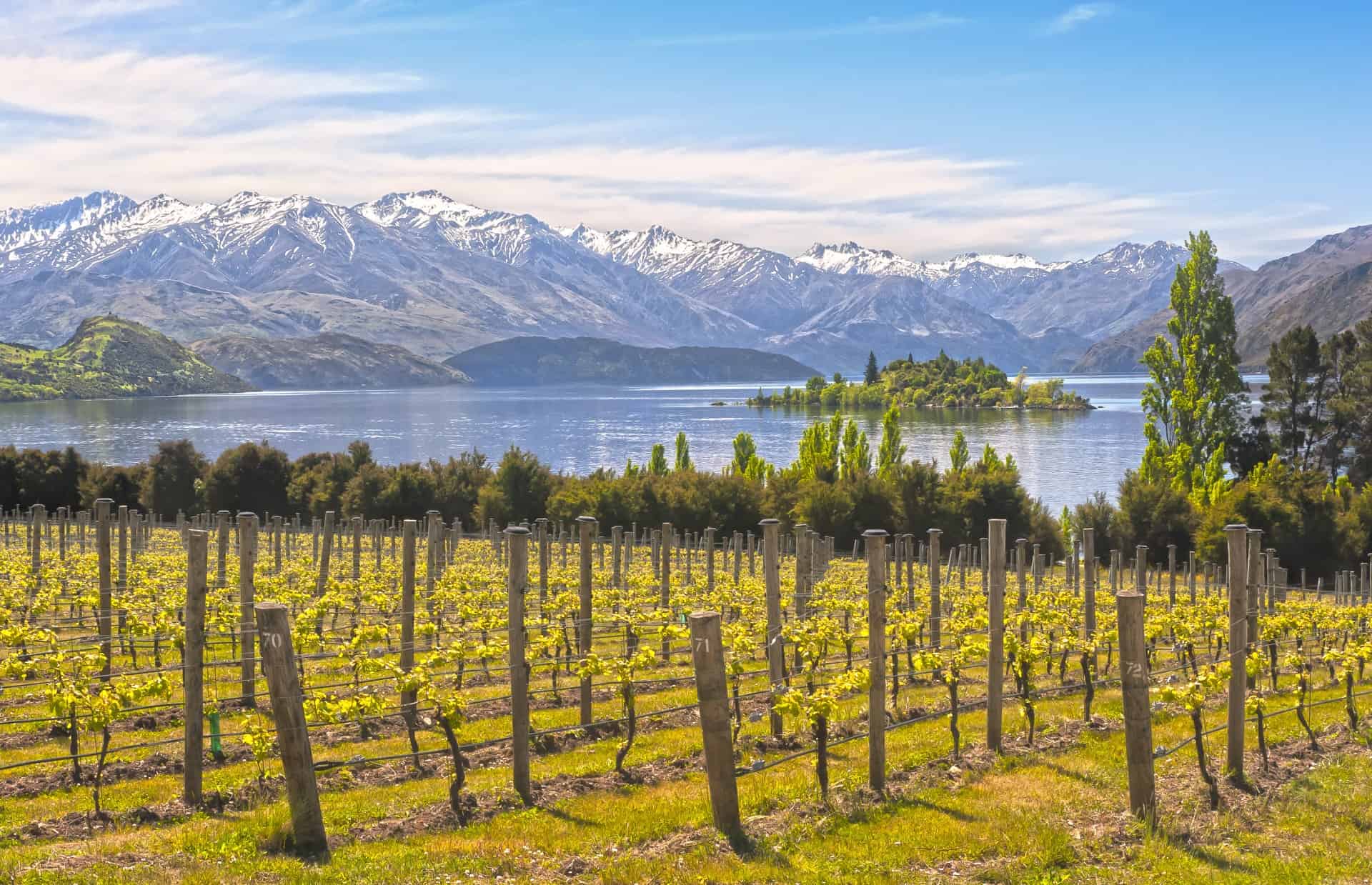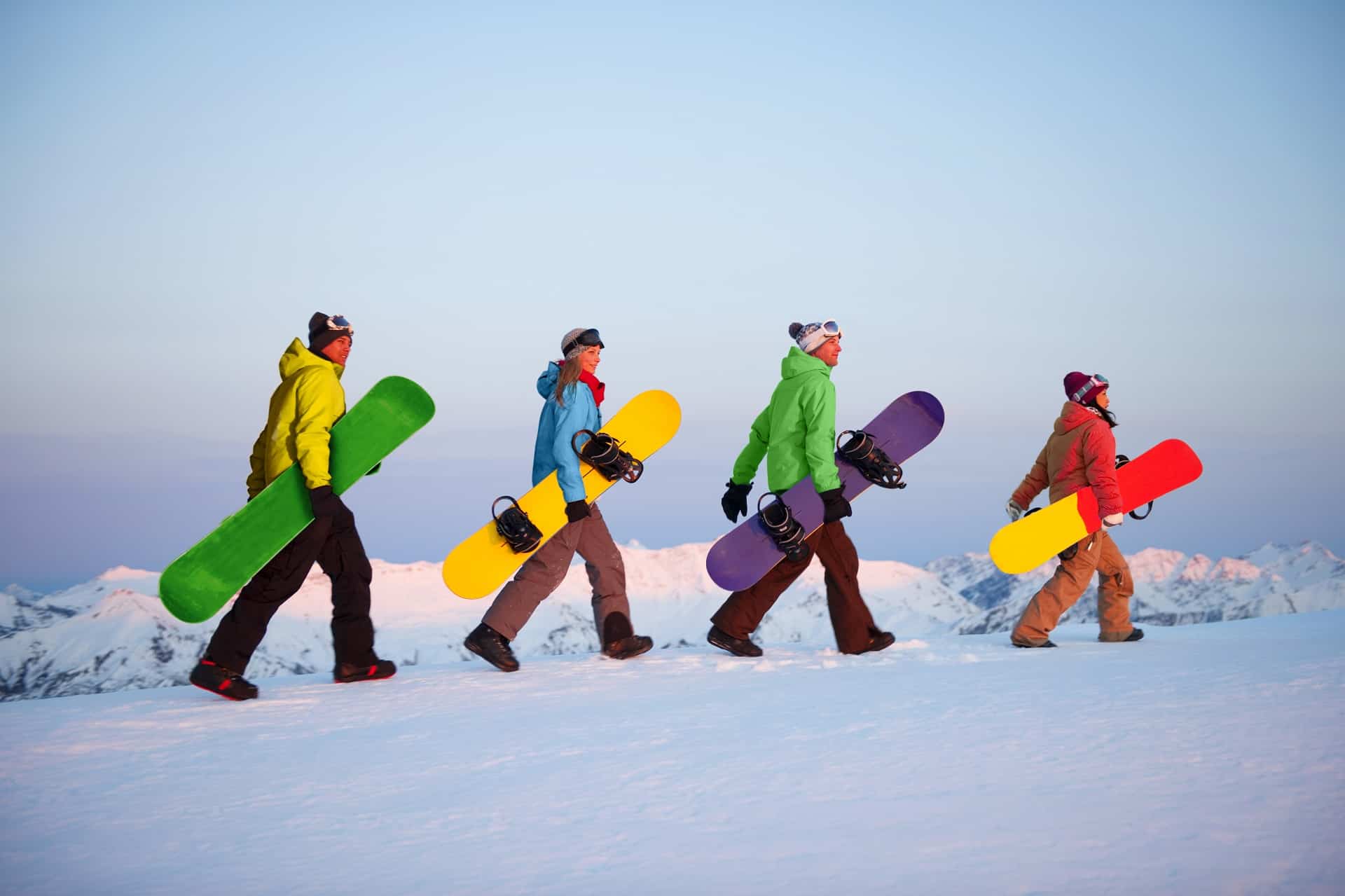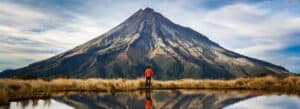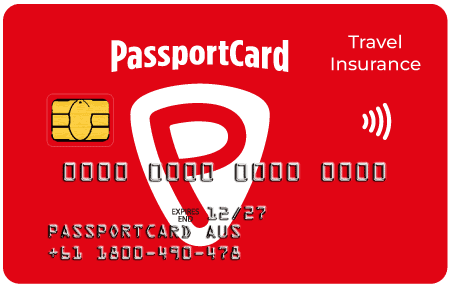

New Zealand Travel Guide
A visit to Aotearoa New Zealand is an experience you won’t forget in a hurry. From breathtaking natural scenery to adrenalin-pumping activities and vibrant Māori culture, there’s so much to love about our Pacific neighbour.
Before you jet off across the ditch, it’s always good to find out a little about what to expect while you’re there and get some helpful tips on how to prepare for your trip—and it’s all here in this handy travel guide filled with helpful information for your New Zealand adventure!
What to know about visiting
Climate
The diverse range of attractions and activities on offer in New Zealand makes it a popular destination in both the warmer and cooler months of the year.
The high season runs from December through to February with the temperature generally ranging between 20 – 30°C, making it an ideal time for outdoor activities like heading to the beach, going hiking, catching a cricket match or visiting a festival.
The low season runs from June through to August, with temperatures typically ranging from 10 – 15°C. While you’ll still be able to find plenty to keep you busy in larger cities like Auckland, Wellington and Christchurch, the snow fields are a major drawcard at this time of year.
Culture and language
New Zealand is largely influenced by a combination of European and Māori cultures.
English and Māori are the two official spoken languages, which can be very appealing to most Australian travellers who want to be able to communicate easily almost anywhere they might travel while visiting New Zealand.
If you plan to visit a Māori site, it’s important to respect tapu (sacred) protocols, such as not touching or interacting with any sites or objects of significance. Māori culture also stipulates that the head is the most sacred part of the body, so it’s very important not to touch a person’s head without their permission.
Getting around
Much of the breathtaking scenery on show throughout New Zealand is best accessed by road, making either car or campervan popular modes of transport for Australian visitors. However, if you’d prefer not to drive yourself, buses are a great alternative that will allow you to travel between cities and to many more rural locations.
Accommodation
You can find an extensive variety of accommodation options throughout New Zealand. While you can easily find hotel accommodation in most locations, there are also plenty of other options including holiday parks and campgrounds, backpacker hostels, private holiday home rentals, bed and breakfasts, serviced apartments and even farm stays.
Entry requirements
Most Australian citizens and permanent residents (provided they don’t have certain criminal convictions) can visit, stay and work in New Zealand indefinitely without a visa. Australian permanent residents will need to apply for a New Zealand Electronic Travel Authority (NZeTA) to travel to New Zealand.
It’s always a good idea to visit the Australian government’s Smartraveller website before your trip for the latest information and updates about travelling to New Zealand.

Best ways to experience New Zealand
Aussies love a Kiwi adventure, but with so much on offer, it can be hard to know where to start when planning your New Zealand escape. You could easily spend weeks or even months exploring the gorgeous cities, quaint towns and awe-inspiring natural attractions scattered throughout New Zealand’s north and south islands. If you want to know the best way to get the full NZ experience, try to include these activities on your itinerary:
- Māori cultural experience in Rotorua – Getting acquainted with the traditional Māori culture is a must for every visitor to NZ, and there’s no better place to do it than in Rotorua where you can take in Te Pa Tu, Mitai Māori Village, Te Puia, Whakarewarewa and the Hell’s Gate Geothermal Park
- Bungy jumping in Queenstown – New Zealand is a thrill-seekers paradise, with its mountainous topography lending itself perfectly to plenty of terror-inducing activities including bungy jumping, swings and zip lining. While you can find bungy opportunities in many parts of NZ, the iconic and historic AJ Hackett’s Karawau Bridge near Queenstown is where it all started, offering an unbeatable experience
- Skiing or snowboarding on Mt Ruapehu – New Zealand is famed for its snow-capped mountains and first-class skiing and snowboarding opportunities. If you’re visiting during winter, head to Mt Ruapehu, New Zealand’s largest commercial ski resort with slopes suitable for skiers and snowboards of every ability, from beginner through to advanced. Just make sure you add our Winter Sports Comprehensive cover when you purchase your travel insurance to make sure you’ll still be covered.
Please refer to the relevant PDS before purchasing our travel insurance to understand what is, and is not, covered by the policy to ensure it is the right cover for you.



Instant payouts on approved claims with PassportCard
When you choose PassportCard, you’ll enjoy the extra peace of mind of knowing you’ll be able to cover most expenses there and then if something goes wrong.
When you purchase one of our travel insurance policies, we’ll ask you if you’d like a PassportCard to take with you on your trip. If something happens while you’re away (like your luggage is delayed, your cash is stolen or you experience a medical issue), our team can handle your claim quickly over the phone and transfer funds to your PassportCard on-the-spot**.
If approved, you’ll be able to withdraw cash to cover expenses that can arise from things like delayed luggage or stolen cash, or if it’s a medical issue, we can instantly add funds to your PassportCard so you can immediately pay for expenses when you need to.
You won’t need to fill out any paperwork and instant access to funds means you won’t be left out of pocket.
Find out more about how instant claims work or get a quote for your upcoming trip.
New Zealand travel insurance FAQs
The best way to find out how much it will cost to get cover to travel to New Zealand is to get an instant quote with PassportCard. It only takes a couple of minutes to get a personalised quote by providing some basic details such as your age, destination/s, travel dates and the level of cover you would like.
Absolutely. Simply add Snow Sports cover when you complete your quote and the cover will be automatically included with your travel insurance policy. Make sure you read the relevant PDS prior to purchase as inclusions can vary depending on the type of policy you choose.
It’s always a good idea to get travel insurance when travelling to New Zealand, even if purely for the peace of mind of knowing you’re prepared if something doesn’t go to plan. From medical emergencies to lost luggage, travel insurance can come in handy in a variety of situations. Choosing cover that also offers instant claims can also be invaluable while travelling abroad.
New Zealand does have reciprocal health agreements with Australia that allow Australian citizens and permanent residents to access some publicly funded necessary medical care that can’t wait till you get home. However, as the agreements don’t provide full coverage, the New Zealand government recommends travellers hold comprehensive travel insurance, including medical coverage through travel insurance.










